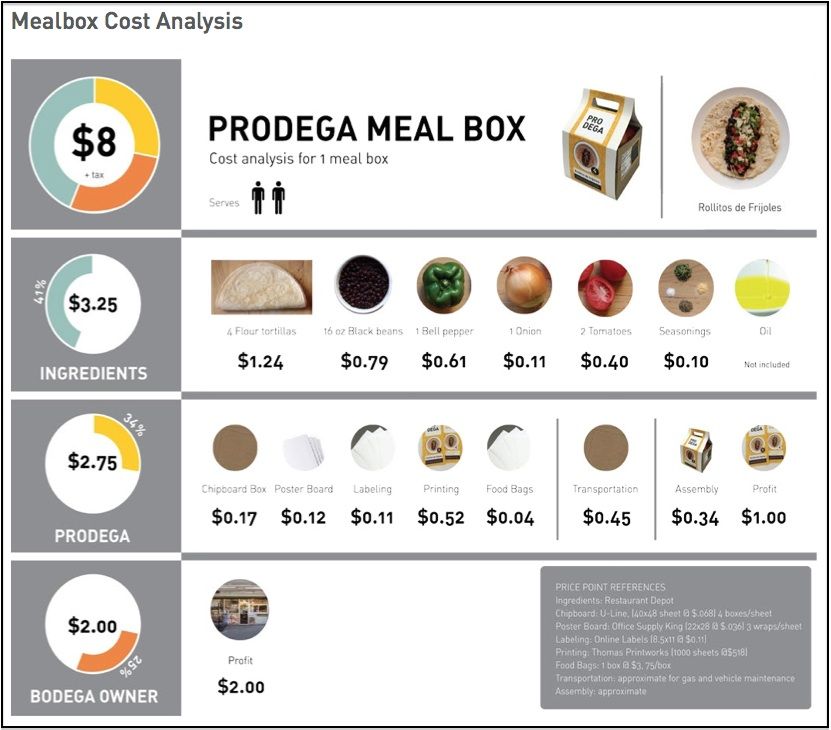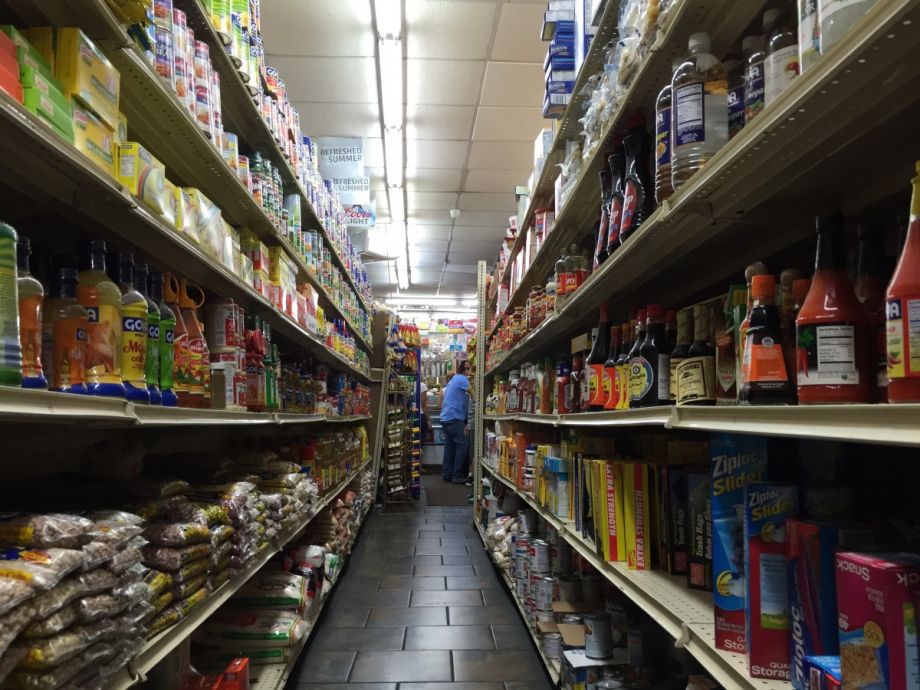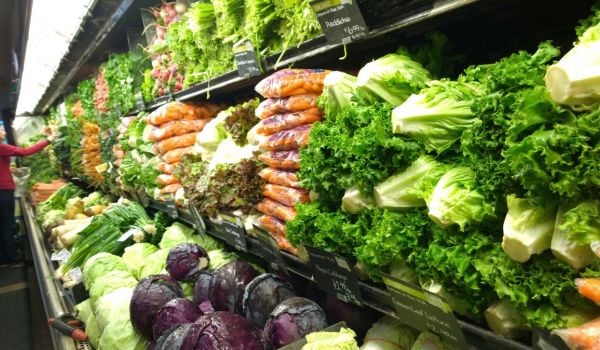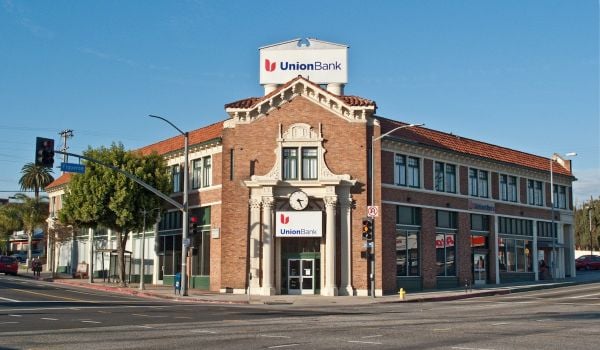Corner stores. Convenience marts. Delis. They’re known by many names in many cities. In New York — where sometimes you can find three or four on one block — they’re usually called bodegas. To serve loyal customers, bodega owners wake up at 4 or 5 a.m. in order to pick up supplies from warehouses. They go with a list, and are in and out and over to the bodega by 6 or 7 o’clock. They’re a steadfast neighborhood food source, but from breakfast sandwiches to candy, they aren’t necessarily the go-to server of healthy eating.
“There’s a need floating around, but no one’s been able to capture that,” says Chisun Rees, a recent graduate of the master’s program in transdisciplinary design at the New School’s Parsons School of Design. Rees and Ashley Graham and Leah Cabrera collaborated on a thesis project that piloted a service, called “Prodega,” to bodega owners that would deliver uncooked, pre-packaged healthy meal boxes to bodegas, which they would then sell to customers.
The trio found that a lot of past initiatives by the city to get bodegas to offer healthier options had failed. “A lot of them were targeting the customers, saying, ‘buy healthier food,’” Rees says. “We really wanted [Prodega] to be bodega owner-centric.” (In California, Healthy Retail SF is also working on a business-focused approach to getting small corner stores to up the fresh produce factor in that city’s food deserts.)
They started by mapping the stakeholders of the bodega system: customers, employees, suppliers, competitors, regulators and even business consultants. While it might be obvious to think of Whole Foods or Trader Joe’s as competitors, instead what they found, by dint of location as well as customer base, was that the real bodega competitors were drugstore chains like CVS or Duane Reade (owned by Walgreens). For years, these stores have carried canned foods and other non-perishables that are commonly found on bodega shelves, and they have also been adding fresh fruits and vegetables at some locations, putting more pressure on bodegas’ bottom lines.
Whether a bodega or a CVS, the easiest products to find are usually the snacks, candy or frozen meals (even though there might be healthier options available). That’s what sells, and they last fairly long. The result, the Prodega group recognized, is that rather than “food deserts,” bodegas are really operating in “food swamps,” a term coined by researcher Geoffrey Mullings. Food swamps offer easy access to food, but what’s for sale is overwhelmingly unhealthy.
On Valentine’s Day, right around when they started their research, the team braved the cold New York winter to do an informal survey of the community in Central Harlem. They asked three questions, starting with what bodega did community members have a crush on.
Then, “why do you love this bodega?” The most referenced reasons were customer service, followed by convenience, selection and the presence of a deli (not all bodegas have a deli with prepared foods).
“What would make you put a ring on this bodega?” they then asked. The number one answer was healthier choices — at 30 percent, more than twice as much as any other response.
Through a classmate whose uncle works at Jetro Cash and Carry, which distributes to most if not all of New York City’s bodegas, the group got connected with Mango Grocery, a bodega in the mostly residential Fordham Heights neighborhood in the Bronx, to pilot sales of the Prodega meal packages. The New York Times featured Mango Grocery owner Sandy Ortiz in a story last year about encouraging healthier eating through bodegas. As reported in that profile, New York’s 12,000 bodegas typically employ fewer than 10 employees, grossing $15,000 to $30,000 a week, generating essential income, wealth and tax revenue. No sweetheart tax deals for bodegas.
While developing the Prodega meal boxes, Rees and her fellow students looked at prepared food delivery businesses like Blue Apron and Plated.
“We looked at those services to see what was working and what wasn’t working, and applied those to the conditions of bodega owners,” Rees says.
One difference, of course, was that the meals would be delivered in bulk to the bodega, rather than straight to customers’ doors, to avoid cutting the bodega out of the deal and to tap into the existing bodega customer loyalty.
Another key difference: production costs. Inspired by Leanne Brown’s Good and Cheap: Eat Well on $4/Day, the group wanted to make sure they stayed around that price point, per person, per meal — a standard based on the amount in food stamps available per person, per day. Prodega meal package ingredients cost $3.25 in the pilot, including mostly ingredients that are already found at Jetro, the wholesale distributor. “We each ate a package to test, and we each got full, but people have different appetites,” Rees admits.

“Sourcing ingredients and coming up with meals that not only are affordable but also culturally palatable to residents of an area was vital,” Rees says. The group envisions having a shifting menu based on cultural and seasonal needs, and perhaps even different menus for different neighborhoods. In the final model they envisioned, bodega customers would be able to pre-order the next week’s meals at their favorite bodega. The Prodega team even proposed a recipe challenge, to give customers a voice in the process.
Community engagement could also be key to keeping costs down. “Later on we’d want to explore having community members volunteer for Prodega and actually assemble some of the meal boxes/bags, maybe even do some of the deliveries, in exchange for a loyalty program or free meals,” Rees says.
As another cost-saving measure, the Prodega team sees all of the Prodega work being done from a truck or fleet of trucks, to avoid paying rent while also adding delivery capacity. Packages, after several trials, were piloted at Mango Grocery in Prodega-branded brown bags (a cost-saving as well as space-saving measure).
With only a week to prototype sales, they weren’t able to sell very many, but they learned a ton.
“We found that we needed a lot more marketing collateral, would have helped to have more informative posters, or pamphlets along with the product, because it was new,” Rees says. While customers of all kinds asked about the Prodega packages, it was mostly younger customers who bought them. The prototype meal was a bean burrito.
Rees, Graham and Cabrera have all since started full-time jobs. (Rees works for the NYC Mayor’s Office of Operations.) They remain open to continuing Prodega as a side project this fall. They’re even open to pitching the idea to someone with more capacity or capability to implement it.
The would-be bottom line for potential bodega owners: $2 per Prodega package sold.
“The whole idea of the pre-packaged thing was so that there’s less work for the bodega owner to do,” Rees says. “All they’re doing is selling it, they’re not having to put any extra time and effort and money into it.”
The Equity Factor is made possible with the support of the Surdna Foundation.

Oscar is Next City's senior economic justice correspondent. He previously served as Next City’s editor from 2018-2019, and was a Next City Equitable Cities Fellow from 2015-2016. Since 2011, Oscar has covered community development finance, community banking, impact investing, economic development, housing and more for media outlets such as Shelterforce, B Magazine, Impact Alpha and Fast Company.
Follow Oscar .(JavaScript must be enabled to view this email address)

















